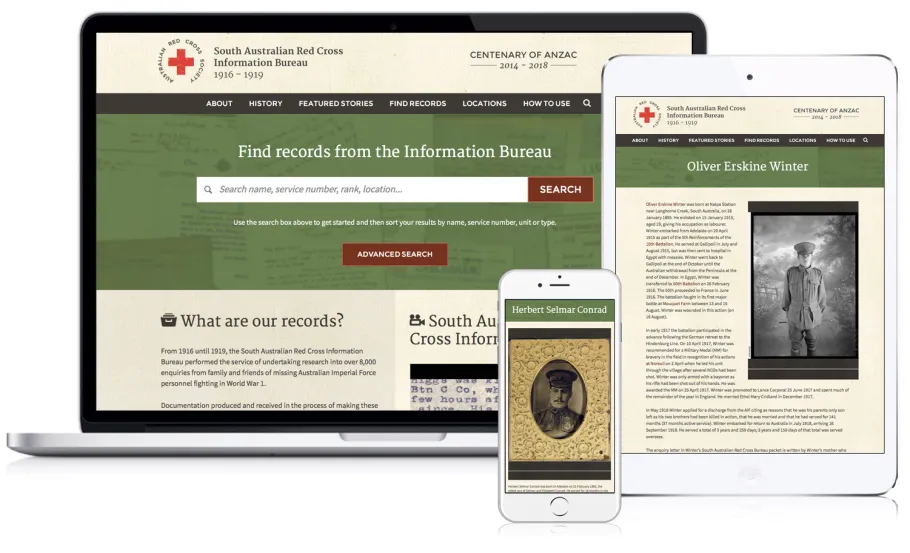In late 2014 PreviousNext were engaged by the State Library of South Australia for the Drupal development and design of the Red Cross Information Bureau Centenary of Anzac website.

From 1916 until 1919, the South Australian Red Cross Information Bureau (SARCIB) performed the service of undertaking research into 8000+ enquiries from family and friends of missing Australian Imperial Force (AIF) personnel who fought in World War 1 (WW1).
Challenge
As part of the Centenary of Anzac commemorations, the SLSA wanted to provide an online resource for searching, viewing and sharing records of the South Australian Red Cross Information Bureau that were held in their collection. This would require the phased development of a web resource that would best exhibit the information collected; documentation produced and received would need to be digitised in order to be included in the ‘packets’ of records that can be searched and viewed on the site.
Solution
Using data extracted from the State Library's catalogue system and imported into Drupal, records are able to be displayed in context with components such as mapping, links to records at other institutions as well as views of the actual records themselves. The website also provides the opportunity for visitors to provide feedback and contribute to the information about soldiers, thus enhancing SLSA's records about an individual, in real time, with community information. Open Data was at the heart of the project, with the State Library able to offer access to whole dataset via the website and content formatted with appropriate metadata to allow for interoperability with other research resources.
Outcome
PreviousNext worked closely with the team at the State Library of South Australia to provide a framework to meet their requirements and showcase these unique historic records. The result is a rich, interactive window into the life and times of these soldiers who fought in World War One, providing the opportunity for South Australians to know and value their heritage by recognising the contribution of their people to the war.
visit sarcib.ww1.collections